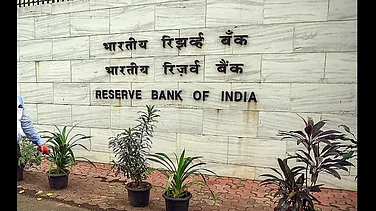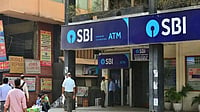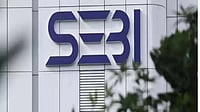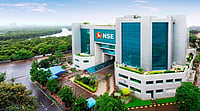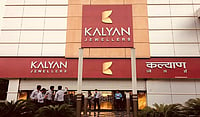Businesses and households are "learning to adapt" to lockdown measures and the dent to demand will be "moderate" as compared to countrywide shutdown of activities done last year, Reserve Bank Governor Shaktikanta Das said on Wednesday.
There can be a temporary dip in aggregate demand conditions in the economy, especially in contact-intensive sectors like retail and hospitality, he added.
A slew of analysts have been cutting their 2021-22 growth estimates because of the second wave of the pandemic and the ensuing lockdowns.
Global ratings agency S&P on Wednesday revised down its real GDP growth estimate to 9.8 per cent from 11 per cent. The RBI has estimated that the economy will grow at 10.5 per cent in 2021.
It can be noted that the nationwide lockdown enforced at a four-hour notice during the first wave of the infections led to a severe dent to demand conditions in the economy, which is officially projected to have contracted by 7.6 per cent in 2021. At present, India is witnessing nearly 4 lakh new infections and 3,500 deaths in what is said to be the second wave, which has led to localised lockdowns.
"With restrictions and containment measures being localised and targeted, businesses and households are learning to adapt. Consequently, the dent to aggregate demand is expected to be moderate in comparison to a year ago," Das said in a special address to announce additional measures to protect the economy.
He, however, did not give any comments on how RBI sees the growth scenario going ahead. RBI typically comes out with its assessment of growth in the policy reviews and the next scheduled meeting of the rate-setting panel is in early June.
The governor said reports suggest that the disruption in manufacturing units so far is minimal and consumption demand is also holding up, with sales of consumer goods rising in double digits in January-March 2021, and average daily electricity generation up by 40 per cent year-on-year in April.
Rail freight has registered a growth of over 76 per cent year-on-year in April while toll collections in April suggest that mobility has declined but quite unlike the abrupt halt in mobility during April last year, he said.
Auto registrations have shown a moderation in April when compared to March but the tractor segment continues at a robust pace, he noted.
The Purchasing Managers' Index (PMI) for manufacturing continued in expansion mode at 55.5 in April 2021 compared to 55.4 in the preceding month, Das added.
"Overall, the high frequency indicators are emitting mixed signals," he said, assuring that RBI is monitoring the situation closely.
"RBI will closely and continuously monitor all incoming data to assess on a real time basis the impact of the second wave on macro-economic and financial conditions," the governor said.
He said the second wave of infections is debilitating, but "not unsurmountable" and the "battle ready" RBI is committed to go unconventional and devise new responses as and when the situation demands.














